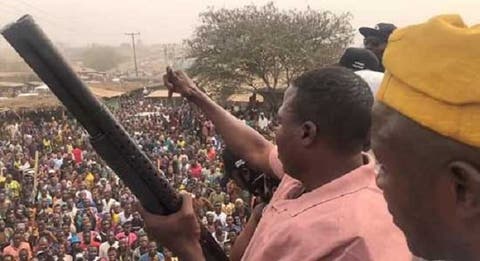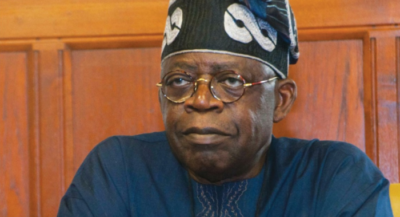*Says Article 3, 4 of UN treaty not domesticated hence its declaration not enforcible in Nigeria
*Rules that where national security is threatened, fundamental rights is secondary
By OUR REPORTER
“Article 3 and 4 of the United Nations charter have not been domesticated in Nigeria. No international treaty shall have a force of law without being treated by the national assembly; and international treaty does not become binding unless enacted into law by the national assembly. Therefore, the United Nations declaration is not enforceable in Nigeria,” Appeal Court said.
The Court of Appeal sitting in Ibadan, on Wednesday, dropped what will continue to spoil the mood of tribalist agitators in Nigeria, as it set aside the judgement of an Oyo State High Court which awarded N20 billion damages against Nigerian government in favour of Yoruba self-determination activist, Mr. Sunday Adeyemo a.k.a. Sunday Igboho.
The presiding judge, Justice Muslim Hassan, delivering judgement in the appeal filed by the Attorney General of the Federation, Department of State Services (DSS) and Director, Department of State Services in Oyo State, against the judgement of the state High Court, held that Justice Ladiran Akintola acted on the wrong principles of law in awarding the cost to Igboho.
Justice Akintola had on September 17, 2021, awarded the sum of N20 billion as damages against the Attorney General of the Federation and the DSS over the joint security operation in Igboho’s Ibadan residence on July 1, 2021.
But Justice Hassan held that the judgement of the lower court was not supported by any evidence, but by two affidavits.
He said the judge cannot assess damages using his own conceived parameters, stating that there was no evidence that quoted the value of damages at Igboho’s residence.
Justice Hassan also held that there was no evidence including autopsy to support the claim that two people were killed in the activist’s residence during the invasion.
According to the judge, the lower court assumed jurisdiction of the case to look at the enforcement of fundamental human rights suit filed by Igboho without looking at the merit of the case, noting that the court should not have assumed jurisdiction of the case without looking at its merit.
The judge added that the case did not qualify under the enforcement of human rights because there is a threat to national security.
“When there is a threat to national security, the enforcement of fundamental right is secondary. I have read the judgement of the lower court and the Article 20:1 of the African charter on self-determination and Article 3 and 4 of the United Nations charter on rights of the indigenous people which the judgement was based upon. A statute cannot be treated in isolation.
“When considering a statute, entire provision should be considered and not a section. The same charter talks about the sovereignty of a nation. Neglecting Article 27,28,29 of the African charter will not give proper interpretation to it.
“Article 3 and 4 of the United Nations charter have not been domesticated in Nigeria. No international treaty shall have a force of law without being treated by the national assembly; and international treaty does not become binding unless enacted into law by the national assembly.
“Therefore, the United Nations declaration is not enforceable in Nigeria. The judge acted on wrong principles of law and the action of the respondent constitute a threat to unity of Nigeria. The respondent has no right to take up arms against Nigeria,” Justice Hassan held.
The appellants filed six grounds of appeal, urging the court to determine if the trial judge was right to determine the issue of fundamental human right; if the trial judge was right to assume jurisdiction of the case against a Federal Government agency; if the originating motion of the respondent was competent; if the respondent was right to take up arms against the government in his quest for self determination; if the trial judge was right enter judgement in favour of the respondent and if the trial judge was right to award damages to the respondent.
Justice Hassan resolved issues 1,4,5 and 6 in the applicants’ favour and resolved issues 2 and 3 in favour of the respondent.
The judge subsequently held that the lower court lacked the jurisdiction to entertain the suit and set the judgement aside, stating that the respective parties in the case should bear their costs.
The Legal Head of DSS in Oyo State, Barrister Nurudeen Abdulrahman, in his reaction to the judgement, said it affirmed the position of 1999 Constitution.
On his part, counsel to Igboho, Chief Yomi Alliyu, SAN, also lauded the judge for a well-considered judgement.




